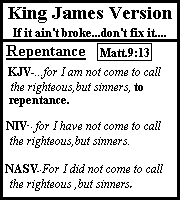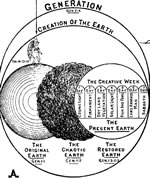Street Preaching Stories

Publicans Versus The Missionary
Told by John Paton when he was a Glasgow city missionary during the years 1847-1856.
As a City missionary, I was required to spend four hours daily in visitation-work; but often had I to spend double that time, day after day in order to overtake what was laid upon me. About eight or ten of my most devoted young men, and double that number of young women, whom I had trained to become Visitors and Tract Distributors, greatly strengthened my hands.
Besides the Saturday night meetings all the year round, we held, in summer evenings and on Saturday afternoons, Evangelistic and Total Abstinence services in the open air. We met in Thompson's Lane, a short and broad street, not open for the traffic of conveyances, and admirably situated for our purposes. Our pulpit was formed by the top of an outside stair, leading to the second flat of a house in the middle of the lane. The hearty singing by my Mission Choir gave zest and joy to the whole proceedings. Of other so-called "attractions: we had none, and needed none, save the sincere proclamation of the Good Tidings from God to men!
On one occasion, it becoming known that we had arranged for a special Saturday afternoon demonstration, a deputation of Publicans complained beforehand to the Captain of the Police-that our meetings were interfering with their legitimate trade. He heard their complaints and promised to send officers to watch the meeting, prevent any disturbance and take in charge all offenders, but declined to prohibit the meetings till he received their reports. The Captain, a pious Wesleyan, who was in full sympathy with us and our work, informed me of the complaints made and intimated that his men would be present; but I was just to conduct the meeting as usual, and he would guarantee that strict justice would be done. The Publicans having announced amongst their sympathizers that the Police were to break up and prevent our meeting and take the conductors in charge, a very large crowd assembled, both friendly and unfriendly, for the Publicans and their hangers-on were there "to see the fun," and to help in "baiting" the Missionary. Punctually, I ascended the stone stair, accompanied by another Missionary who was also to deliver an address, and announced our opening hymn. As we sang, a company of Police appeared and were quietly located here and there among the crowd, the serjeant himself taking his post close by the platform, whence the whole assembly could be scanned. Our enemies were jubilant, and signals were passed betwixt them and their friends, as if the time had come to provoke a row. Before the hymn was finished, Captain Baker himself, to the infinite surprise of friend and foe alike, joined us on the platform, devoutly listened to all that was said, and waited till the close. The Publicans could not for very shame leave, while he was there at their suggestion and request, though they had wit enough to perceive that his presence had frustrated all their sinister plans. They had to hear our addresses and prayers and hymns; they had to listen to the intimation of our future meetings. When all had quietly dispersed, the Captain warmly congratulated us on our large and well-conducted Congregation, and hoped that great good would result from our efforts. This opposition, als, the Lord overruled to increase our influence, and to give point and publicity to our assaults upon the kingdom of Satan.
Though disappointed thus, some of the Publicans resolved to have revenge. On the following Saturday evening, when a large meeting was being addressed in our Green Street Church, which had to be entered by a great iron gateway, a spirit merchant ran his van in front of the gate, so that the people could not leave the Church without its removal. Hearing this, I sent two of my young men to draw it aside and clear the way. The Publican, watching nearby in league with two policemen, pounced upon the young men whenever they seized the shafts, and gave them in charge for removing his property. On hearing that the young men were being marched to the Police Office, I ran after them and asked what was their offence? They replied that they were in charge for injuring the spirit merchant's propery; and the officers tartly informed me that if I further interfered I should be taken too. I replied, that as the young men only did what was necessary, and at my request, I would go with them to prison.
The cry now went through the street, that the Publicans were sending the Missionary and his young men to the Police Office, and a huge mob rushed together to rescue us; but I earnestly entreated them not to raise disturbance, but allow us quietly to pass on. At the Office, it appeared as if the lieutenant on duty and the men under him were all in sympathy with the Publicans. He took down in writing all their allegations, but would not listen to us. At this stage a handsomely dressed and dignified gentleman came forward and said, "What bail is required?"
A few sharp words passed; another and apparently higher officer entered and took part in the colloquy. I could only hear the gentleman protest, in authoritative tones, the policemen having been quietly asked some questions, "I know this whole case, I will expose it to the bottom; expect me here to stand by the Missionary and these young men on Monday morning."
Before I could collect my wits to thank him, and before I quite understood what was going on, he had disappeared; and the superior officer turned to us and intimated in a very respectful manner that the charge had been withdrawn, and that I and my friends were at liberty. I never found out exactly who the gentleman was that befriended us; but from the manner in which he asserted himself and was listened to I saw that he was a Citizen well known in official quarters. From that day our work progressed without further open opposition.
The True Story of John G. Paton
Evangelist for Jesus Christ
Among the South Sea Cannibals









